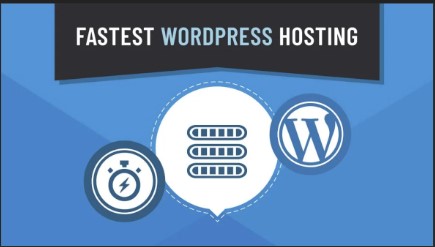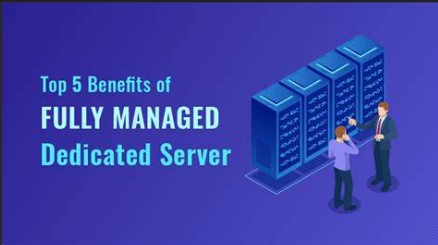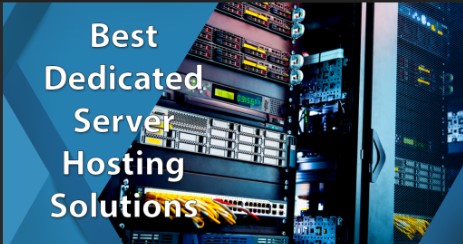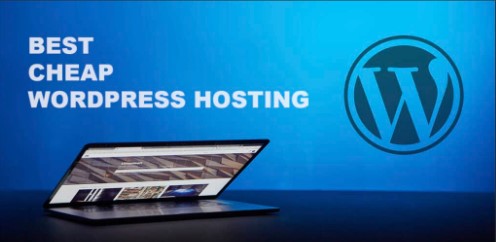WordPress Hosting Buy
In the sprawling digital ecosystem, your website’s hosting is the bedrock of your online presence. Understanding the importance of choosing the right WordPress hosting is crucial.
The hosting environment you select can significantly impact your site’s performance, security, and user experience. It’s not merely a matter of where your website resides; it’s about how efficiently it operates and how reliably it serves your audience.
The right hosting can elevate your WordPress site’s performance to new heights. Faster load times, enhanced security, and robust support translate into a seamless user experience, higher search engine rankings, and ultimately, a successful online venture. Investing time in selecting the appropriate hosting solution is not just wise; it’s essential.
Types of WordPress Hosting
Shared WordPress Hosting
Shared hosting is akin to living in an apartment complex. You share resources such as CPU, memory, and bandwidth with other websites on the same server.
Pros and Cons of Shared Hosting for WordPress
Shared hosting is the most economical option, making it ideal for startups and small blogs. However, it can suffer from “noisy neighbor” syndrome, where one site’s high traffic can affect the performance of others.
Ideal Use Cases for Shared Hosting
Shared hosting is suitable for personal blogs, small business sites, and portfolios that don’t expect massive traffic. If you’re starting and need a budget-friendly option, shared hosting is a viable choice.
Managed WordPress Hosting
Managed hosting takes the heavy lifting off your shoulders, providing a hassle-free experience tailored specifically for WordPress.
Benefits of Managed Hosting for Beginners and Experts
With managed hosting, tasks like updates, security, backups, and performance optimizations are handled by the provider. This allows beginners to focus on content creation and experts to work on customization and scaling.
Key Features to Look for in Managed WordPress Hosting
Look for features such as automated backups, staging environments, enhanced security protocols, and expert support. Managed hosting often includes a suite of tools designed to streamline WordPress management.
VPS and Dedicated WordPress Hosting
Virtual Private Server (VPS) and dedicated hosting provide more power and control, catering to websites with higher demands.
Differences Between VPS and Dedicated Hosting
VPS hosting involves partitioning a physical server into multiple virtual servers, each with dedicated resources. Dedicated hosting gives you an entire server to yourself. VPS is like having your own condo, whileicated hosting is akin to owning a mansion.
When to Consider Upgrading to VPS or Dedicated Hosting
If your site experiences high traffic, requires robust security, or needs custom server configurations, upgrading to VPS or dedicated hosting is advisable. These options provide superior performance, reliability, and control.
Cloud WordPress Hosting
Cloud hosting leverages a network of virtual servers to host your site, offering unparalleled scalability and reliability.
Advantages of Cloud Hosting for Scalability and Performance
Cloud hosting can handle traffic spikes seamlessly by distributing resources across multiple servers. This ensures high uptime and fast load times regardless of traffic volume.
Best Practices for Utilizing Cloud Hosting
Utilize load balancing, automatic scaling, and regular monitoring to maximize cloud hosting benefits. This approach ensures optimal performance and resource utilization.
Key Factors to Consider When Buying WordPress Hosting
Performance and Speed
Speed is critical for user experience and SEO. Server resources directly impact your site’s speed.
How Server Resources Affect Site Speed
CPU power, RAM, and storage type (SSD vs. HDD) are pivotal. SSDs offer faster read/write speeds, improving site performance.
Importance of SSD Storage and CDN Integration
SSDs provide quicker data retrieval, reducing load times. Integrating a Content Delivery Network (CDN) distributes content across global servers, enhancing speed and reliability.
Security and Reliability
Your hosting should safeguard your site against threats while ensuring consistent uptime.
Essential Security Features for WordPress Hosting
Look for features like firewalls, DDoS protection, and malware scanning. Regular security updates are crucial.
Backup and Restore Options
Automated backups ensure your data is safe. Ensure your host offers easy restoration processes in case of data loss.
Customer Support
Effective support can make or break your hosting experience.
24/7 Support and WordPress Expertise
Round-the-clock support ensures help is available when you need it. Support staff with WordPress expertise can resolve issues swiftly.
Evaluating Support Channels: Live Chat, Phone, Email
Variety in support channels offers flexibility. Live chat provides quick answers, while phone and email are useful for detailed inquiries.
Cost and Value
Understanding what you’re paying for is vital.
Understanding Pricing Structures
Hosting costs can vary widely. Be aware of introductory rates vs. renewal prices and any hidden fees.
Balancing Cost with Features and Performance
Aim for a balance where you get essential features without overpaying. Sometimes spending a bit more ensures better performance and support.
Top WordPress Hosting Providers
Provider A: Comprehensive Review
Overview, Pricing, and Key Features
Provider A offers competitive pricing with features like free SSL, daily backups, and robust security. Their pricing plans are transparent, with no hidden fees.
Performance Benchmarks and Customer Feedback
Independent tests show excellent uptime and speed. Customer reviews praise their responsive support and reliability.
Provider B: Comprehensive Review
Overview, Pricing, and Key Features
Provider B specializes in managed WordPress hosting, offering automatic updates, staging sites, and enhanced security. Their pricing reflects the premium features provided.
Performance Benchmarks and Customer Feedback
Provider B consistently ranks high in speed and uptime tests. Users appreciate the ease of use and expert support.
Provider C: Comprehensive Review
Overview, Pricing, and Key Features
Provider C offers scalable cloud hosting solutions, ideal for growing sites. Features include scalable resources, advanced caching, and integrated CDNs.
Performance Benchmarks and Customer Feedback
Performance metrics show impressive speed and reliability. Customers highlight the flexibility and performance, especially during traffic surges.
Comparing the Top Providers
Feature Comparison Chart
A detailed chart comparing essential features like storage, bandwidth, security, and customer support across the top providers.
Best Providers for Different Needs
Recommendations based on specific needs: best for beginners, e-commerce, high-traffic sites, and those needing advanced customization.
How to Migrate Your WordPress Site to a New Host
Preparing for Migration
Backing Up Your WordPress Site
Before migration, a complete backup ensures your data is safe. Use plugins or manual methods to back up files and databases.
Choosing the Right Migration Tools and Plugins
Select tools like Duplicator or All-in-One WP Migration for a seamless process. These tools simplify the migration by handling data transfer and reconfiguration.
Step-by-Step Migration Guide
Exporting Your Site from the Old Host
Follow the plugin’s instructions to package your site’s data. This typically involves creating an export file that contains your entire site.
Importing Your Site to the New Host
Upload the export file to your new host using the same migration tool. Configure settings as necessary to match the new server environment.
Testing and Troubleshooting Post-Migration
After migration, thoroughly test your site to ensure everything works correctly. Check for broken links, missing images, and functionality issues.
Optimizing Your WordPress Site Post-Migration
Speed Optimization Tips
Leveraging Caching Plugins and CDNs
Use caching plugins like W3 Total Cache or WP Super Cache to reduce server load and improve load times. Integrating a CDN ensures fast delivery of content globally.
Optimizing Images and Media Files
Compress images and use formats like WebP for faster loading. Tools like Smush or ShortPixel automate this process.
Enhancing Security
Updating Plugins and Themes
Regularly update all plugins and themes to patch security vulnerabilities. Outdated software is a common target for hackers.
Implementing Two-Factor Authentication
Adding an extra layer of security with two-factor authentication (2FA) protects your login process. Plugins like Google Authenticator can help.
Regular Maintenance Practices
Scheduling Regular Backups
Set up automated backups to ensure you always have a recent copy of your site. This provides a safety net in case of data loss.
Monitoring Site Performance and Uptime
Use tools like UptimeRobot or Pingdom to monitor your site’s performance and uptime. Regular monitoring helps you catch and fix issues promptly.
Conclusion
Recap of Key Considerations When Buying WordPress Hosting
Choosing the right WordPress hosting involves evaluating your needs, understanding the types of hosting available, and comparing top providers based on performance, security, and cost.
Final Tips for Choosing the Best Hosting for Your WordPress Site
Ensure the host you select aligns with your website’s requirements and growth plans. Look for reliable performance, robust security, and responsive support.
Encouragement to Make an Informed Decision for Long-Term Success
Investing time in choosing the right hosting solution can lead to long-term success for your WordPress site. Make an informed decision to ensure a stable, secure, and high-performing online presence.





